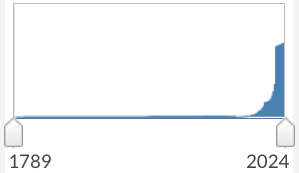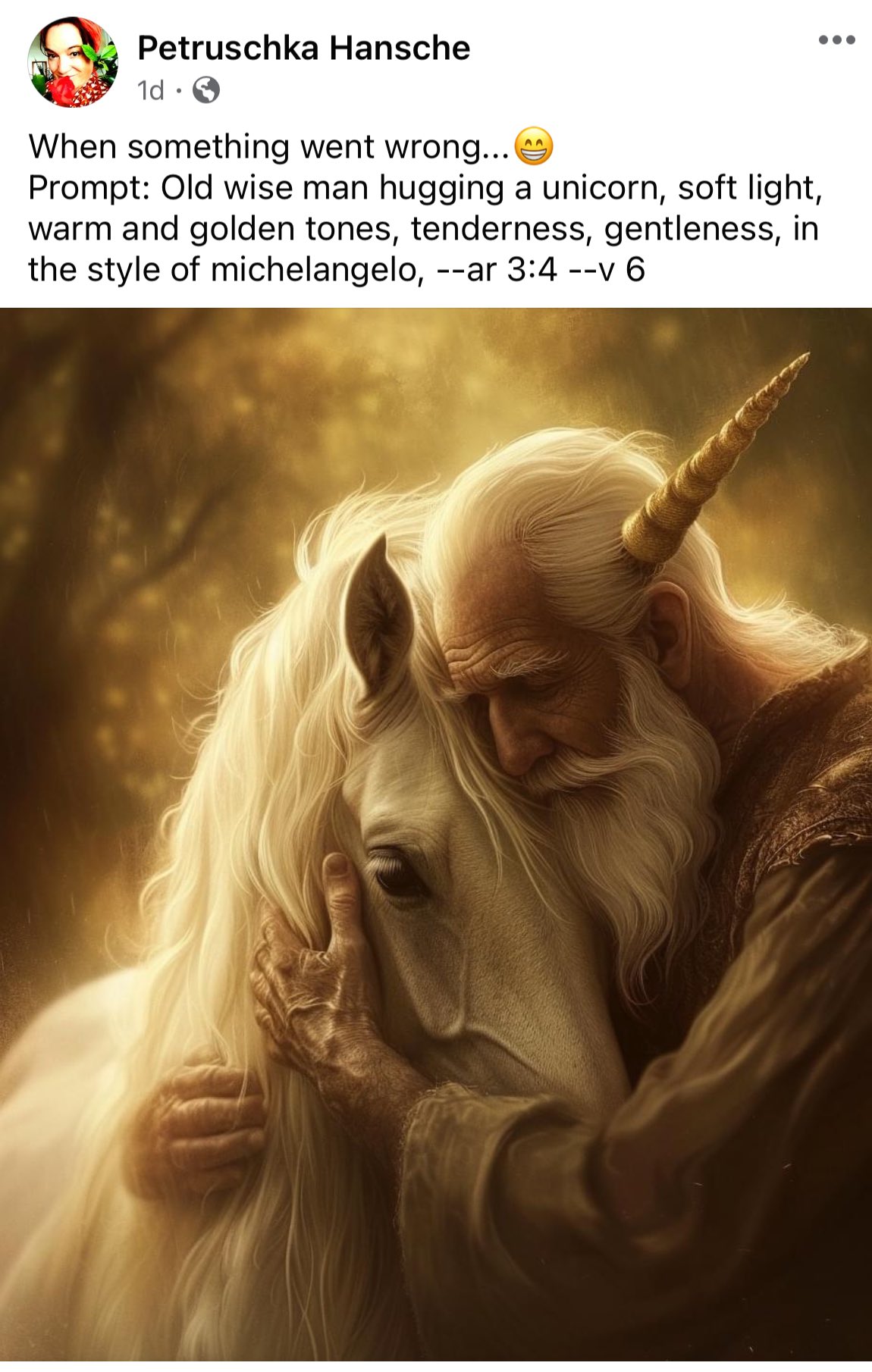
February 2, 2024, by Brigitte Nerlich
Truth, post-truth, and post-fake
I was sitting at my desk trying to think about something I could blog about. For some reason the word ‘truth’ popped into my head. After that I engaged in a bit of ‘reading the tea leaves’. That is, I messed about on the news database Nexis, rummaged in the Oxford English Dictionary and looked at Wikipedia, all the while reading tweets on the side. I’ll tell you what I found. This includes some longish quotes, but I think they are quite important.
Truth
The word truth has a very long history and sprouted many meanings from Old English to now. Much has been written about truth, initially in philosophy and latterly more in the social sciences.
Looking at how ‘truth’ has been used in the news, at least the news data recorded on Nexis, can only provide a very biased glimpse at things, but I thought that glimpse was nevertheless interesting. When I asked Nexis to look for ‘truth’ in all the news items it has on its database, it came up with a massive amount of hits, but it also provided a timeline, and that timeline is intriguing. Have a look.
 The first attestation for the use of the word ‘truth’ is from 1789. Wow, I thought, the start of the French revolution. But it turned out it was the date of the first inaugural address given by George Washington, the first president of the United States (1789-1797). It’s really worth savouring what he said about truth in the flowery rhetoric of his time, as you would never find a politician saying similar things today, flowery rhetoric or not:
The first attestation for the use of the word ‘truth’ is from 1789. Wow, I thought, the start of the French revolution. But it turned out it was the date of the first inaugural address given by George Washington, the first president of the United States (1789-1797). It’s really worth savouring what he said about truth in the flowery rhetoric of his time, as you would never find a politician saying similar things today, flowery rhetoric or not:
“….there is no truth more thoroughly established than that there exists in the economy and course of nature an indissoluble union between virtue and happiness; between duty and advantage; between the genuine maxims of an honest and magnanimous policy and the solid rewards of public prosperity and felicity”….
After that, the word truth was not used a lot in the news until about 2016/17, when Brexit and the election of Donald Trump brought forth a very different meaning of truth, consolidated by Trump calling his social media platform launched in 2022 ‘Truth Social’. You can see a steep spike in use on the timeline between 2016 and now.
Having looked at the first article containing the word truth (in the Nexis dataset), let’s look at the last that I found the day of my search (24 January) – and with this we get to post-truth, a compound that probably makes up a lot of the spike in the timeline.
Post-truth
On 24 January, 2023, CE Noticias Financieras English published an article entitled “Bolivarian post-truth, José Rafael López Padrino”. The first paragraph recaps the history of the word post-truth: “The term post-truth is a neologism used to describe the intentional distortion of reality with the aim of creating and shaping public opinion, influencing social attitudes (Steve Tesich, 1992). Post-truth implies a phenomenon in which the veracity of information loses relevance in the face of the strategic ability to influence opinion through the use of lies, emotional and cognitive manipulation.”
This corresponds to the definition provided by the OED where they define post-truth as “Relating to or denoting circumstances in which objective facts are less influential in shaping political debate or public opinion than appeals to emotion and personal belief.”
When you think about it, George Washington was mightily appealing to emotion and personal beliefs in this address, but this did not supplant ‘truth’… I think.
But what 1992 work was the journalist referring to? That made me curious. In 1992, the playwright, screenwriter and novelist Steve Tesich wrote a piece for The Nation entitled “A government of lies” and said in the context of Watergate, the Gulf War and Bush:
“We are rapidly becoming prototypes of a people that totalitarian monsters could only drool about in their dreams. All the dictators up to now have had to work hard at suppressing the truth. We, by our actions, are saying that this is no longer necessary, that we have acquired a spiritual mechanism that can denude truth of any significance. In a very fundamental way we, as a free people, have freely decided that we want to live in some post-truth world.”
Nothing seems to have changed since then, really. But on top of the ‘spiritual mechanism’, we now have a technological mechanism in the shape of social media which “can denude truth of any significance”.
George Washington, champion of ‘free people’ would turn in his grave, seeing what has become of the truth. And Tesich seems to have felt that when he wrote:
“The myth of a nation, any nation, is a source of great strength. The myth of America inspired countless generations at home and abroad because a faith existed that we were moving forward as a people, and while benefiting from the patrimony we inherited, we were at the same time contributing by our actions to a better future for all. For 200 years that was the promise, the living faith, the moral absolute and the true north of our voyage”, a voyage started in part by Washington. But: “We have lost both faith and contact with our national myth. We are guided by expediency alone. Our democratic institutions are eroding, and they don’t seem ours anymore.”
The same year, 1992, the media studies scholar John Hartley used the term “post-truth as the title of a chapter, “Journalism in a Post-truth Society”, in his book The Politics of Pictures (Wikipedia). This was also the year when Richard Rorty said “I do not have much use for notions like ‘objective truth’”, quoted by Susan Haack in an essay on post-truth that should give us food for thought.
Worse was to come in 2016, the 25th anniversary of Tesich’s essay and the year that the OED declared ‘post-truth’ word of the year. In its standard edition, the OED provides one quote for 2016 but one could provide a million more. “Social media..has become a post-truth nether world in which readers willingly participate in their own deception because it feels good”.
Let’s have a quick look at this netherworld.
Post-fake
A whole new era of post-truth is now beginning with the advent of AI and knowledge pollution, as well as the destruction of common-sense.
On 29 January, 2023, Gary Marcus, a leading expert on AI reposted a post from the previous day that contained an AI generated image of an old wise man hugging a unicorn in the style of Michelangelo – at least that was the prompt given to the AI.
 Marcus asked his readers to spot at least five errors in the image. Robert Scott Kelly, came up with six: “1. horn through head 2. 6 fingered left hand 3. right hand impossibly placed through horse 4. weird horse ear 5. Possibily [sic] 2 sources of light (though many renaissance paintings have improbable light sources) 6. not Michelangelo in style”.
Marcus asked his readers to spot at least five errors in the image. Robert Scott Kelly, came up with six: “1. horn through head 2. 6 fingered left hand 3. right hand impossibly placed through horse 4. weird horse ear 5. Possibily [sic] 2 sources of light (though many renaissance paintings have improbable light sources) 6. not Michelangelo in style”.
Some of these errors are quite commonplace with AI image systems that just can’t do hands for some reason. But the whole thing made me think. What is this? Is it simply an image with mistakes; is it a fake; or is it just bullshit, as so many so-called AI hallucinations are? And will we soon live in a world of fakes all the way down?
And a final mystery. I tried to trace the source of this tweet/image in order to attribute it. All I could find was a discussion about it on reddit, but nothing else. There doesn’t seem to be a Twitter account for the person that is supposed to have tweeted the original image. I asked Gary Marcus, but no reply. Does the tweet/image actually exist?
That made me think: Are we entering an altogether new era, quite distinct from the post-truth one, namely a ‘post-fake era’, where unlikely unicorns gallop through uncanny valleys and “denude truth of any significance”?
I give the final word to a reddit user who responded to the image by saying: “Art is subjective, but i love what could be interpreted as unintentional symbolism. This should be called ‘Humanity embraces AI'”.
No comments yet, fill out a comment to be the first

Leave a Reply